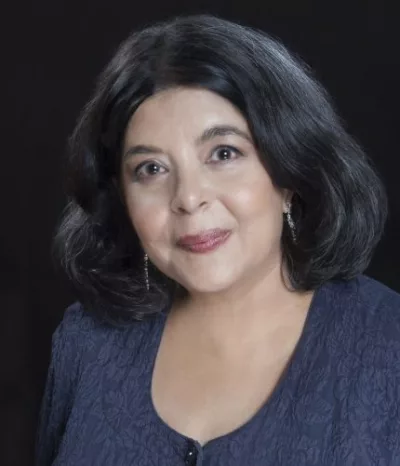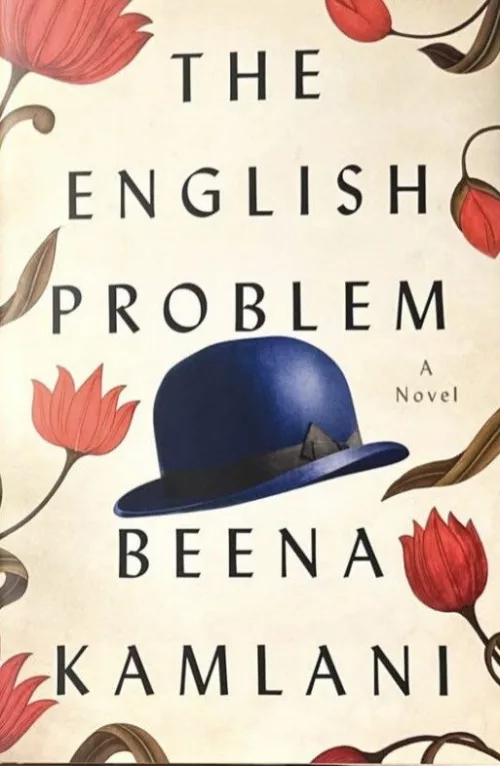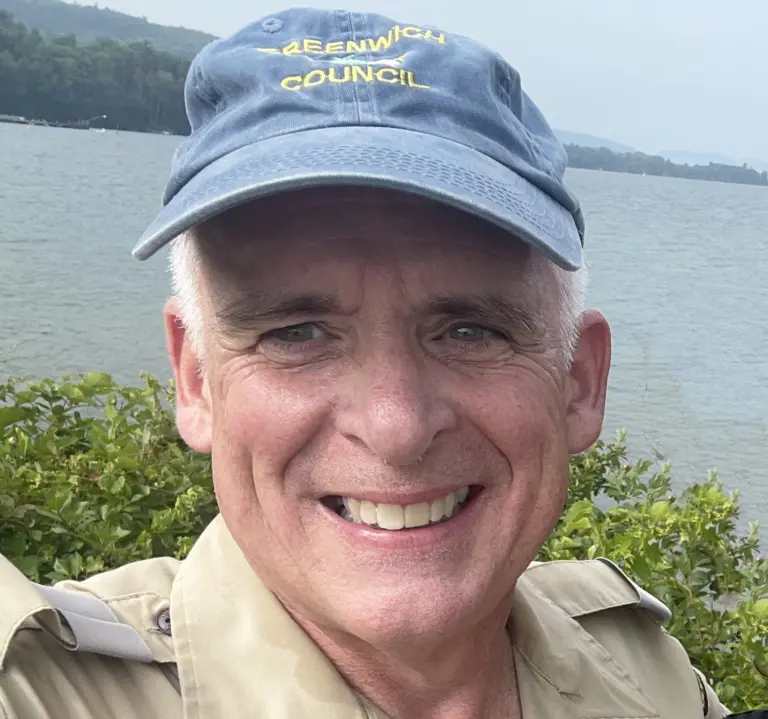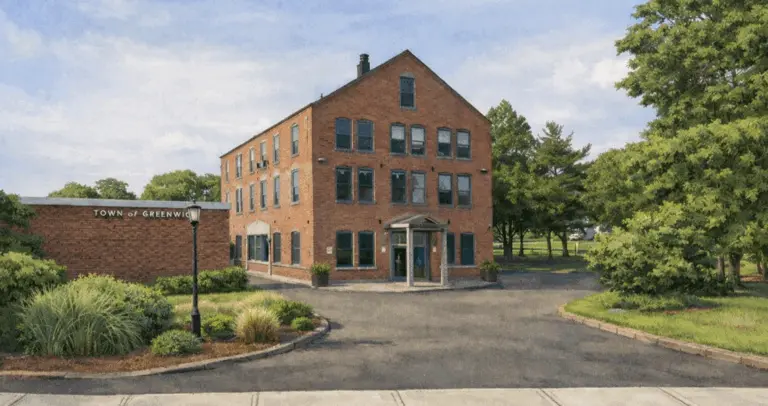By Anne W. Semmes

Beena Kamlani is a distinguished former senior editor at Penguin Random House having worked with numerous literary luminaries. A former Greenwich resident, she now resides in New York City. On Saturday morning, March 1, from 9-10:30 a.m., Kamlani will address her just published first novel, “The English Problem,” at the Bruce Museum’s free “Meet for Coffee at the Bruce.” The book has been named a Top Ten book by Bloomberg for 2025. The discussion will include Kamlani addressing her lifelong journey through literature and publishing.
Kamlani’s novel is a work of historical fiction inspired by the life of her uncle, who was chosen by Mahatma Gandhi as a young Indian in the early 1930s to train as a barrister in London with the goal of using his legal skills to further India’s struggle for independence from British rule. The story line includes how in that training his path crosses “many literary and artistic luminaries of the modernist era, such as Virginia and Leonard Woolf and the Bloomsbury group, E. M. Forster – and Picasso.”
To learn more about Kamlani’s novel, what had inspired it, and what has been the literary path of her own life, the Sentinel asked her a few questions.
Q: Besides being a fulltime editor, and you’ve also taught book editing for years at New York University, when did the writing of “The English Problem” begin?
A: I had been thinking about it for a long time but began it in 2015 while I was still working at Penguin Random House and then devoted myself to it full-time after I left in 2019. …I think every story sits like an ember within you, and it’s waiting for its birth on the page. For me, it was a haunting. I was haunted by my father’s much older brother who had gone to London from colonial India… He was a brilliant man who succeeded in his mission. But after his return from India, he simply faded away into the dusk…I felt compelled to tell his story… The spark for me began when I saw a 1931 news clip of Gandhi’s arrival in London. I saw him getting off the ship…the tensions, the enormity of the problem, as Gandhi embarks on his journey to negotiate Indian independence with the British government. The sheer weight of it…that was so moving.”
Q: How were you led in your educational years to become an editor? What were formative influences?
A: My educational background is in English and American literature, and modern European realist literature…That focus was the pivot. All the writers I began caring about deeply were extraordinary editors. They agonized over word choices, emotions. They went deep to find the latent tensions in scenes that hadn’t been fully explored. They knew what was missing, and they went deeper. They rewrote until the words expressed what they wanted to say. Flaubert, Virginia Woolf, E.M. Forster, Katherine Mansfield, Willa Cather, Eudora Welty, James Baldwin, Saul Bellow. All these writers I admired so much were also first-class editors. That obsession with the exact shade of a word, sentence, paragraph so you finally get it to read as you want it, that quest for it became my driving force.
Q: In your years serving as senior editor at Penguin Random House, how many authors did you work with, and which ones were standouts – and most formative in your own writing?
A: I worked with so many writers, too many to name individually here. But all of them taught me something important that would sharpen my own writing, from the vitality of words to the intricacies of plot, to really going deep into a character to see what’s making them tick. From Robert Fagles’s translations of the Odyssey, the Iliad, and Virgil’s Aeneid, I learned about nuance, how each word, like a skein of shot silk, changes meaning with emphasis and with the company it’s in. From Saul Bellow, I learned about sound, the ring of words…He would hear the language as he was writing. He would read aloud to himself because then he could hear it, and that’s how he edited – something I learned to do as well.
Q: What triggered your podcast: “A Writer’s Life Readings,” where you read various author selections. Is it still active and accessible?
A: It is not active. When I turned to this novel completely, I didn’t want to be distracted in any way…. It will definitely become active again, because all these writers have so much to tell us about where we are and how we are thinking about life and everything around us. But what inspired it was the Covid period when I was here in New York watching U-Haul trucks leave the city, and I felt very alone. And I turned to all my friends on my bookshelves and wondered whether they had something to say about this awful time where so many people were dying and weren’t prepared for death.
And why did this virus make us, the living, feel so cold and alone. I went to all the writers I loved because I could make connections between the way I was feeling and extrapolate from that to what others were probably feeling. And here were these writers who were going through similar things, maybe different circumstances, but very similar things. What is isolation? What is loneliness?
And then when I saw the first rooftop gardeners in Manhattan appear with their pails and their potting soils, and their seeds and continue doing what they’d always done every year in May, I wondered about gardening and the healing magic of soil. And so, I went to Penelope Lively and her account of gardening and why it brought her so much joy. Each thing happening around me had a correspondence in the work of a writer I loved, and I wanted to share that with the world.
But I do want to go back to it, because so many people have asked about it. Back then, I didn’t know how to do a podcast, so what I did was record it, then sent the recording to about 250 to 300 people every ten days or two weeks, and they listened to it and wrote back and told me what they had got out of it. But now, of course, it can be a standalone podcast. It’s on my website www.beenakamlani.com
To register for March 1 “Meet for Coffee at the Bruce with Beena Kamlani” visit https://1072.blackbaudhosting.com/1072/Meet-for-Coffee-at-the-Bruce-Beena-Kamlani




